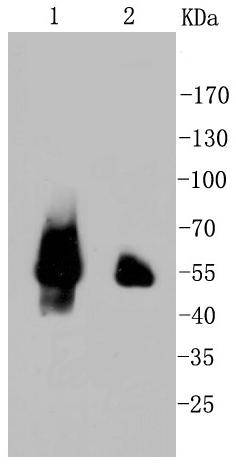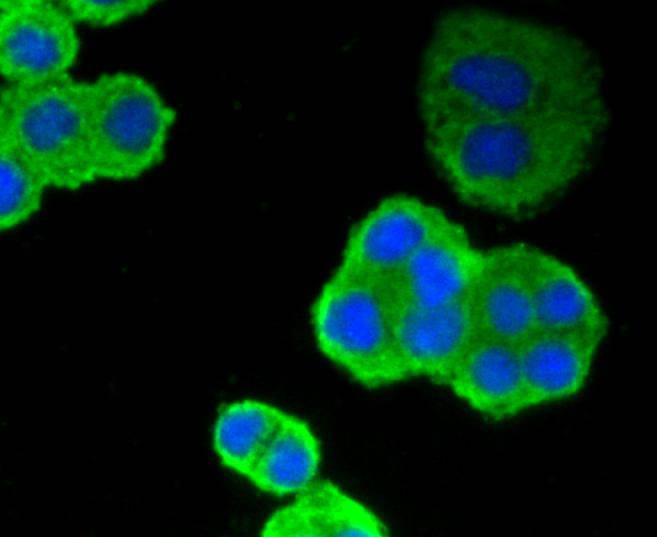The p53 tumor suppressor protein plays a major role in cellular response to DNA damage and other genomic aberrations. Activation of p53 can lead to either cell cycle arrest and DNA repair or apoptosis. It is involved in cell cycle regulation as a trans-activator that acts to negatively regulate cell division by controlling a set of genes required for this process. p53 is phosphorylated at multiple sites in vivo and by several different protein kinases in vitro. P53 is found in increased amounts in a wide variety of transformed cells. P53 is frequently mutated or inactivated in about 60% of cancers.



